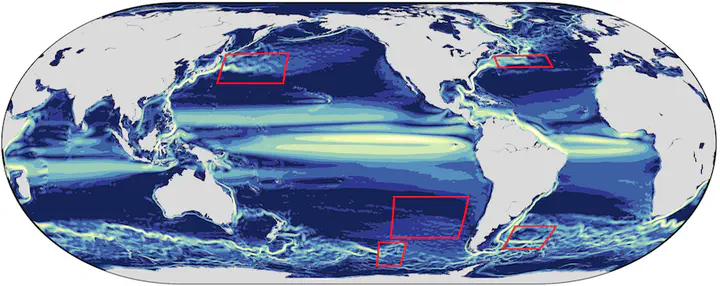Ocean Turbulence

🚧 We are in the process of adding recent work in these areas, please check back again soon for more information or check our Google Scholar page for recent publications 🚧
Ocean mesoscale eddies strongly affect the strength and variability of ocean jets such as the Gulf Stream. The spatial scales of eddies are too small to be resolved in climate models and hence their effects on the large-scale circulation need to be parametrized. The most common parametrizations used in coarse-resolution models are not adequate for the current generation of models, in which eddies are partially resolved. Furthermore, eddies are turbulent and stochastic in nature however current bulk parametrizations of mesoscale eddies are deterministic and do not account for subgrid transport fluctuations or upscale turbulent cascades therefore leading to model error in the representation of present and future climate change. The group is developing new parametrizations which specifically account for such effects and for model error associated with the uncertainty in the parametrizations. The parametrizations are constructed by using first principles, statistical mechanics, and high-resolution model outputs.
– Quantifying the ocean turbulence and energy transfer (e.g., Kjellsson and Zanna 2017)
– Probabilistic representation and parameterization of ocean turbulence (e.g., Porta Mana & Zanna 2014, Zanna et al. 2017, David et al. 2017)